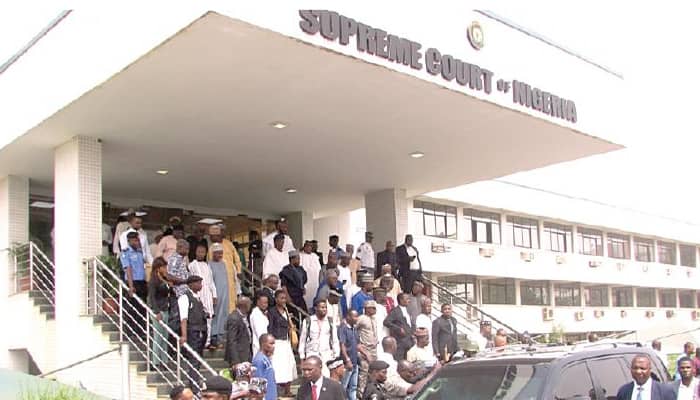
Nigeria’s Supreme Court is set to deliver a verdict on the legality of the Economic and Financial Crimes Commission (EFCC), following a suit filed by 16 state governments. The states argue that the EFCC’s establishment act violates the Nigerian Constitution, specifically Section 12, which requires majority approval from state houses of assembly to enact international conventions into law.
The EFCC defends its constitutionality, citing its crucial role in combating corruption. Director of Public Affairs, Wilson Uwujaren, expressed concern that those challenging the EFCC’s legitimacy are “feeling the heat” of its anti-corruption efforts.
Lawyers and Senior Advocates, Dr. Olisa Agbakoba and Femi Falana, hold divergent views on the EFCC’s constitutionality. While Agbakoba considers the EFCC “unlawfully established,” Falana opposes this view, emphasizing the commission’s legitimacy.
Other experts, like Chico Onumah and Kolawole Oluwadare, support the EFCC’s constitutionality, highlighting its contributions to the anti-corruption fight. Auwal Rafsanjani condemns the state governments’ action, warning that it undermines Nigeria’s progress in establishing accountable institutions.
The Supreme Court’s ruling will determine the EFCC’s fate and impact Nigeria’s anti-corruption efforts.
